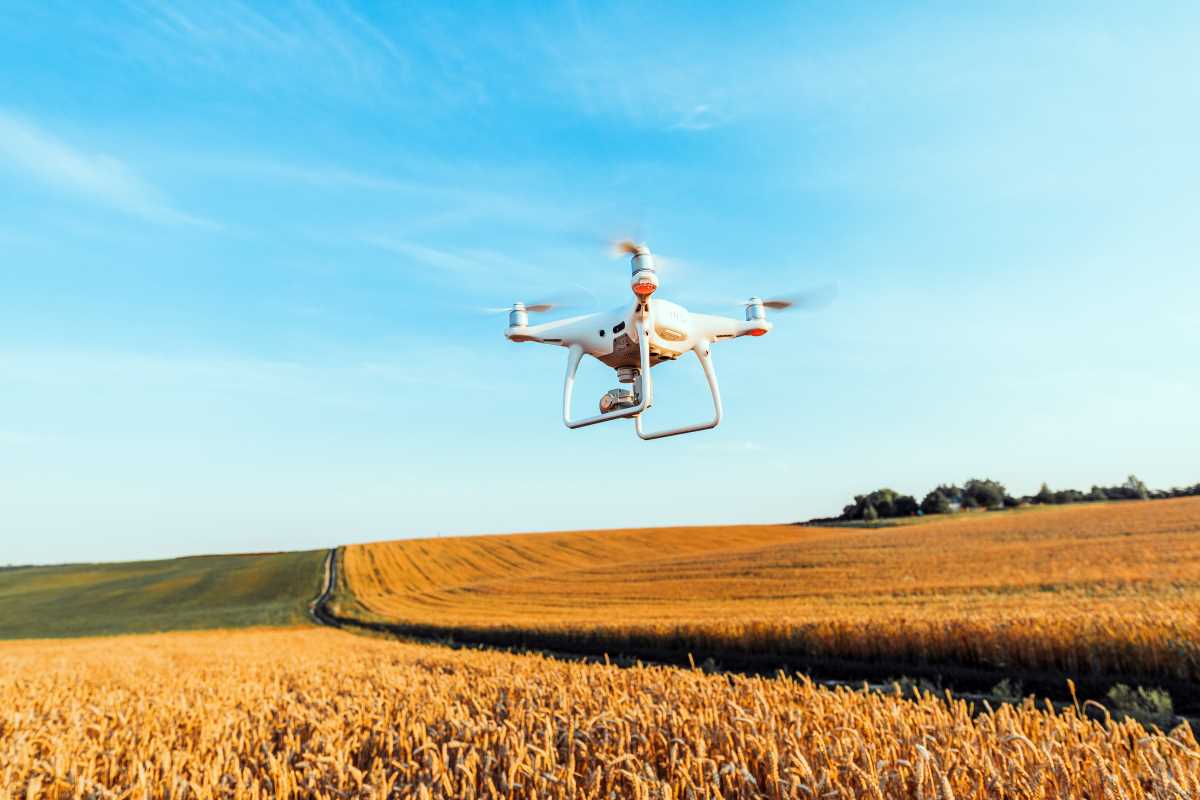Technology is changing everything—even farming. That's right! The agricultural industry is undergoing a digital revolution, and it’s opening up a world of exciting, high-paying tech job opportunities. If you thought tech careers were just about coding in an office, think again. The intersection of technology and farming, called digital agriculture, is brimming with potential for professionals looking for long-term, rewarding careers.
This article dives deeper into how technology is transforming farming, the types of tech roles driving these changes, and why these jobs offer impressive job security and growth potential.
What is Digital Agriculture?
Digital agriculture, or smart farming, describes the integration of advanced technologies into farming practices to make agriculture more efficient, sustainable, and productive. Think of it as farming supercharged by cutting-edge innovation.
The agricultural world now relies on tools that feel like science fiction to older generations of farmers. Here are just a few examples of technologies currently reshaping the industry:
- Precision Farming Tools
- Imagine being able to tell exactly which parts of your crop need water, fertilizer, or pesticide, thanks to a network of GPS sensors and data analytics. Precision farming tools reduce waste and ensure every resource is used wisely, boosting profitability and sustainability.
- Drip Irrigation Systems
- Water scarcity is a pressing issue in many parts of the world. Drip irrigation technologies minimize water waste by delivering exactly the amount of water needed directly to the root zones of plants. This innovation is particularly useful for drought-prone regions.
- Automated Robotics
- Harvesting crops with machines is no new concept, but modern robotics takes it to an entirely new level. From robots that pick fruit to machines that “walk” the fields scanning for weeds, automation is solving labor shortages while enhancing productivity.
- AI and Machine Learning
- Artificial intelligence is used to predict everything from crop yield to potential pest invasions. It’s like giving farmers a crystal ball, allowing them to make better-informed decisions long before issues arise.
- Drones
- Drones help farmers cover massive fields effortlessly. Equipped with cameras and sensors, they gather aerial imagery to assess crop health, identify areas of improvement, and reduce manual labor.
These advancements aren’t just futuristic gadgets. They are practical tools that make agriculture more scalable and sustainable. Importantly, they demand skilled tech professionals to keep innovations running smoothly and effectively.
Why Start a Tech Career in Agriculture?
If you’ve never considered merging farming and technology, here are some key reasons why an AgTech career could be a promising path:
1. High Demand and Job Stability
The world’s population is projected to hit 10 billion by 2050. Feeding all those people will require dramatic increases in food production efficiency. Technology is at the heart of this transformation, and the need for talented professionals has never been greater.
Already, AgTech is a billion-dollar industry. According to research, precision agriculture alone is expected to surpass $16 billion globally by 2028. Beyond the impressive numbers, many nations have begun incentivizing technological advancements in farming through grants and subsidies for innovation, ensuring steady work for those in the field.
The demand for roles like data analysts, robotics engineers, and AI specialists in agriculture is booming and shows no sign of slowing down. For anyone looking for stability in their career, the AgTech sector delivers.
2. Problem-Solving with Purpose
Do you love solving complex challenges? Agriculture offers some of the most fascinating puzzles you can imagine. Whether it’s figuring out how to grow crops with minimal water, combat soil erosion, or create AI that can detect plant diseases, you’re constantly solving meaningful problems.
Tech professionals in this field also earn competitive salaries. For instance, the average salary for an agricultural robotics engineer in the U.S. ranges between $85,000 to $120,000 annually. Add the satisfaction of creating technology that tackles global challenges, and it’s easy to see why so many tech enthusiasts are gravitating toward AgTech.
3. Making a Lasting Impact
Impact matters. When you work in agriculture, your contributions go beyond corporate profits or KPIs. You’re helping to address critical global issues, from fighting world hunger to reducing the carbon footprint of farming practices. AgTech is about creating solutions that ripple through society, improving lives on a large scale.
Imagine the pride in knowing a tool you developed has minimized water use for an entire region or helped reduce food waste by accurately predicting crop conditions. These are not just jobs; they’re opportunities to leave a legacy.
Tech Jobs in Agriculture to Watch For
Curious about which roles are the shining stars of digital agriculture? Here are eight tech-focused jobs driving the future of farming.
1. Precision Agriculture Specialist
Precision agriculture specialists work to make farming as exact as possible. By leveraging big data, GPS tools, and analytics, they help farmers decide when and where to plant, irrigate, fertilize, or harvest for optimal outcomes. The job is a mix of computer science and hands-on fieldwork and provides the chance to solve real-world issues using data.
2. Agricultural Drone Operator
Flying drones isn’t just a hobby anymore; it’s serious business in farming. Drone operators map fields, assess crop health, and monitor landscapes in real time. They convert data into actionable insights and ensure farmers can respond quickly to problems like pest outbreaks or drought stress.
3. AgTech Software Developer
Developing mobile apps and software that farmers use to manage workflows, interpret sensor data, or control drones falls into the domain of AgTech software developers. These professionals combine coding skills with a deep understanding of agricultural needs to create intuitive and impactful digital tools.
4. Agricultural Data Analyst
Each farm generates a wave of data—from soil monitoring to weather trends. Agricultural data analysts turn this information into insights that farmers can rely on for decision-making. Understanding topics like machine learning, geospatial mapping, and advanced data visualization makes this role both exciting and challenging.
5. Farm Automation Engineer
These engineers build and maintain systems like robotic harvesters or automated milking machines. They solve efficiency problems in ways humans simply can’t, automating tasks that once took hours and improving yield without increasing manpower.
6. AI Specialist in Agriculture
AI professionals design systems that predict crop yields, detect diseases faster than human eyes can, or even manage entire supply chains intelligently. This job is perfect for those passionate about machine learning and artificial intelligence.
7. Remote Sensing Specialist
Remote sensing specialists interpret satellite images, drone footage, and other aerial data to track environmental conditions affecting agriculture. This includes soil degradation, water levels, and crop growth trends. Their work is like having a bird’s-eye view of farming challenges.
8. Biotechnology Software Developer
While many biotechnology roles are laboratory-focused, the software side is just as crucial. These developers create systems to monitor genetic edits or manage data from experiments in crop development. This role combines biology with smart software solutions.
How to Prepare for a Career in AgTech
The beauty of AgTech is its diversity. Some career paths require advanced degrees, but others are more accessible to people with experience in coding, data analysis, or hands-on tech projects. Here’s how you can get started:
- Explore Online Courses
- Platforms like Coursera, Udemy, and EdX offer training in relevant skills like data analysis, GIS mapping, and robotics engineering.
- Upskill in Agriculture-Specific Technology
- Take courses that focus on farming-related tools. For example, learn how to use digital irrigation systems or AI software specifically designed for crop prediction.
- Gain Field Experience
- Internships or volunteering with innovative farms and agricultural companies can offer invaluable experience. You’ll also create networking opportunities that could lead to future roles.
- Learn Programming Languages
- Skills in Python, R, and C++ are highly valuable in areas like data analysis and robotics.
- Stay Updated on Trends
- Join AgTech forums or attend conferences to remain informed about emerging tools and practices in the industry.
The merging of agriculture and technology marks an unprecedented shift in how we grow and produce food. It’s an inspiring field with the potential to make a global difference.
 (Image via
(Image via





